- Home
- Charles L. Grant
Riders in the Sky - [Millennium Quartet 04] Page 21
Riders in the Sky - [Millennium Quartet 04] Read online
Page 21
Joey looks up and grins back. “Nope. I’m not.”
“But you will be,” she says, “if he finds out.” And she points to the lake, and Joey turns and moans and backs up slowly.
* * * *
The great black horse rides easily across the water.
Not a ripple, not a splash.
Scarlet fire drips from its hooves, emerald sparks dance from its nostrils and hit the water and turn to steam that turns to fog that rises and spreads in a slow-rising wind.
Red sits easily in the saddle, hat pulled low, one hand on his thigh, the other holding the reins. His head bobs side to side as if he was singing to himself, and when he reaches the shore, he looks up, and he’s smiling.
Slowly Susan lowers her arms. “Yes?”
Joey runs down the slope and stands to one side so he can pat the horse’s flank while he walks. Red leans over, pulls playfully on the boy’s hat.
“Yes?” Susan asks again.
“I saw us on television,” Joey says excitedly. “We had hoods and stuff, and there was lots of neat smoke and stuff, and there was like these big wood things with pointy things on top.” The horse stops when Red’s eyes are level with the women’s. “So how come we don’t have those things, Red? How come, huh? Are we gonna get them?”
“Hush, child,” Eula scolds.
Joey looks at her as if he’s going to disobey, then mutters, “Yes, ma’am,” and spends a few seconds taking care of his hat.
“You feeling better, Miz Korrey?” Red asks the black woman.
“Yes, sir, I am. All healed, all better.”
“Good. That’s good. And you, Susan?”
“Fine,” she says shortly.
Red grins at her—it’s there and it’s gone.
The horse lowers its head, sweeps it around abruptly to stare at Joey, who gasps and backs away so quickly he falls on his rump, nearly rolls down to the water. He jumps up, muttering, brushing at his jeans, straightening his gunbelt, fussing again with his hat.
“Here, child,” Eula says, and pats her leg until he stands beside her. One arm goes around his shoulder; she hugs him once, tightly.
Red pushes his hat back, crosses his hands over the saddle horn, leans over, and whispers something when the horse shies and stamps and lashes its tail. When it’s quiet, he smiles—there and gone—and takes a deep breath.
Closes his eyes.
Opens them and says, “Be pleased to know it’s time to hit the trail.”
Susan says nothing, but her expression is smug; Eula nods; Joey whoops and hollers and breaks into a war dance until he slips on the damp grass and nearly knocks Eula down. This time she grabs the back of his neck and holds him at her side.
Red’s face is impassive. “You know where you have to be. You know when you have to be there. There is no rush. We have plenty of time. I took care of a few things.” He sniffs, rubs the back of his neck. “Don’t believe I’ll see you again before then.”
“Even the odds?” Susan says.
Eula looks at her, puzzled.
“Maybe,” Red says.
“What do you mean, maybe?” Susan, isn’t pleased. “Either you did or you didn’t.”
Eula draws herself up. “What are you two talking about? What odds?”
Red gives her the smile. “Just trying to make sure you don’t get all bruised again, Miz Korrey.”
Eula’s expression tells him she’s not sure if he’s mocking her or not, but she says nothing, only grunts softly.
“And on the way?” Susan asks. “On the way?”
Red frowns at her. “You know.”
She scowls back. “That’s not right.”
“It’s the way it is. What can I tell you, but it’s the way it is.”
“My palomino,” Joey says, impatiently shaking off Eula’s hand.
“Waiting on you, pardner.”
Joey nods thoughtfully. “And can I hurt him? Can I hurt John Bannock?”
Red grins. “Son, when it’s time, you can do all the hurting you want to. Any way you want to.” He holds up a finger. “But nothing before then, you hear me, son?” His head turns. “You hear me, Susan? You listening? Nothing before then.”
The horse steps back, snorting, tossing its head.
Red’s voice lowers, the sound of a dark wind blowing before thunder. “It’s my time, you understand?” Staring hard until she has to look away. “You’ll have yours again, but now it’s my time.”
A tug on the reins, a clucking noise, and the horse begins to turn down the slope.
“Red,” Eula says.
He looks over his shoulder, nothing visible under the brim but cold green eyes.
Eula glances at Susan, then straightens her shoulders. “How is it written? How will it be? I wasn’t supposed to get no hurting, you know. It wasn’t supposed to happen. So how is it written?”
No one moves.
No one speaks.
Until at last he says, “There is no written, Miz Korrey. There is no written.”
“But the Book—”
“Man writes,” he told them all, “but it’s only words. They mean nothing. Not to us.”
“That’s no answer,” she complains.
And he says, “Oh, yes, Miz Korrey. Oh, yes, it is.”
* * * *
He rides across the water, not a ripple, not a splash.
Scarlet fire in scarlet ribbons wind from the great black’s hooves.
Emerald sparks from its nostrils scatter over the lake.
This time the water boils.
* * * *
PART 4
* * * *
1
1
A
n autumn wind blows across a Tennessee hillside, husking through the dying grass, slipping around headstones whose words are worn, whose surfaces are laced with spider-leg cracks. Dead flowers on distant graves shudder and lose their petals. Sharp blue sky and clouds like thin smoke. Trees in their colors spinning leaves into the air.
Casey stands alone beneath a weather-bent sycamore, hands in his pockets, shoulders up against the wind, hair stabbing at his eyes. White hair, not black, but still thick, still barely reaching his shoulders; he’s long since given up trying to swipe it away.
He watches a small group of mourners standing beneath a sagging faded canopy. A few old women huddled in black, a few old men in black suits or dark suits, their ties knotted, their faces reddened, hair slicked, old shoes polished as best they could be. No young ones; no one younger than fifty. There are chairs, but no one uses them. The time has passed to sit in the presence of the dead.
Their bodies block what he knows is there—a coffin none of them, or the woman inside, could have afforded in this life. On the gently curved lid, a trio of flowers picked from the dead woman’s garden only that morning, having lasted this long some said just to be where they are. A simple wreath propped on a wobbly tripod stand wrapped in green paper. A spray of lilies in a cheap glass vase that’s much too short for the length of the stems.
On the far side of the grave, a giant of a man in a black frock coat and gleaming black boots, his face masked by shifting shadow, holds in his left hand an open Bible, his right hand passing tenderly over the coffin now and then. He doesn’t look at the Good Book; he doesn’t need to, he only holds it for the others. His voice reminds Casey for no reason at all of a river that flows in the lightless recesses of a cavern—deep and slightly rough, musical without song. He gestures toward the valley, toward the mist-covered hills that make up the horizon and the mist that covers the green valley floor; he gestures, and he speaks, and the old men and the old women nod, and whisper, “Amen,” and close their eyes against the tears they thought they had already shed.
Casey orders himself to turn away, that he doesn’t need to see this, that he’s seen it already, but he doesn’t turn and he doesn’t stop listening and somewhere below his heart he feels the twisting of a knife.
I don’t need this.
I
don’t want this.
The wind grows stronger, the mist dances and thins, settles and thickens, and the air is streaked with a thousand flying leaves like a flock of tiny birds determined to peck the eyes from his head. He ducks away, hisses when a sharp edge lays open a cut on his cheek. And one on his forehead. And another over the thick eyebrow above his left eye.
“I don’t need this!” he yells, and one old man dressed in old black looks over his shoulder, scowling, shaking a finger, and looks back to the grave.
“Damnit, I don’t want this!” Casey shouts, and an old woman dressed in the best black dress she owns looks over her shoulder, sunken cheeks quivering, the scarf around her head fluttering in the wind. She says nothing, but she doesn’t have to, and Casey snaps a curse at her, shows her his back, and glares at the valley that dares look so peaceful on a day like this, with a wind like this.
While the leaves dart at him again, and again cut his face.
Finally he protects his eyes with his hands and leans against the tree, listening to that voice, to the soft sobs and the soft moans and far up the hillside the not-so-soft sound of horses racing down from the crest.
Don’t look, it’s only a dream.
The voice, the sobs, hooves pounding the turf.
Don’t look.
He can’t help it.
“Lord, no,” he whispers, and begins to run, slapping away the leaves, leaning into the wind, because there is a herd up there, one hundred or more horses of all colors and breeds, stampeding down the slope, kicking over headstones, digging grass up in great spraying clumps, heading straight for the funeral under the faded canopy over there.
He calls a warning, but no one listens.
He stumbles, spins in an awkward circle, runs again and wonders why the living hell they can’t hear the beasts that are only a few yards away, heads tossing, manes rippling, steam puffing from their nostrils and foam bubbling from their mouths. He waves his arms and yells; he waves his arms and the leaves blind him; he sees a stump and veers around it, doesn’t see the exposed root that scrapes along his ankle, causing him to falter, to fall, and for a few feet he’s on all fours before he’s up again. Still running. Still yelling. Until something happens to his legs and he’s on the ground again, sprawled and watching helplessly—
While the herd sweeps through the funeral, snapping the canopy posts, trampling the wreath, shattering the vase, slamming aside the old men and the old women, swallowing them in their midst, and all he can see now is a red-tinged cloud and the horses and falling shadows, and all he can hear are the women, who are too old to scream for very long as they’re broken.
Blood on his face and agony in his legs,, he watches the herd continue headlong down the hill and vanish into the valley covered by the mist.
I don’t need this, he thinks.
I don’t want this, he begs.
And when the wind takes the dust, there is nothing left but the canopy lying torn and twisted on the ground, covering the mourners, who don’t move at all.
The coffin is gone.
The man in black is gone.
Casey knows he can walk, but he crawls instead, keeping well away from the flapping canopy shroud, wincing as the leaves continue to shred his cheeks; swallowing bile, swallowing blood, until he reaches the lip of the fresh open grave. He knows that if he looks he’ll see either the man in black or the dead woman’s coffin, or, he thinks, he’ll see himself.
Down in the mist a horse screams, and there is thunder.
He settles back on his heels, searching the sky, refusing to give the dream the satisfaction of showing him the all too obvious.
The wind pushes trickles of dirt into the hole.
The canopy ripples, its edges snapping like frayed pennants.
The smell of fresh-turned earth; the stench of crushed flowers.
He searches the sky, bows his head, leans forward, and looks.
The grave is empty.
I don’t want this.
Nothing’s there.
I don’t need this.
And a voice says, “Yes, you do.”
* * * *
2
“No,” Casey protested.
“You need it,” the voice insisted, and he felt something cool and wet slide into his mouth.
He choked, swallowed the water, and said, “Damn.”
The voice laughed softly, and he opened his eyes and saw above his head the familiar mottled ceiling of his bedroom. He blinked rapidly and hard because the light was bright and it was difficult to see anything but shapes and shadows moving around the room. Something fluttered by the window that overlooked the front yard; he concentrated on it until it focused into the old white curtains ruffled by a breeze. Beside the window he saw an IV stand, an empty plastic bag hanging from a hook, clear plastic tubing draped over the top.
A good start, he thought, and turned his attention to his water bearer.
A moment later he recognized her face. “Hi,” he said, abruptly ashamed at how weak he sounded.
“Hi, yourself,” Ronnie answered. Red hair pulled back, away from her brow and ears, a size-large checkered shirt that puffed and molded when she moved. “How do you feel?”
His eyes closed momentarily as he took careful, fearful stock—his face felt stiff, as if it were mildly sunburned, cotton batting had been crammed into his head, his chest didn’t feel quite right, and his left leg had clearly been carved out of old wood.
Deeper, far deeper, there was a suggestion of great pain.
“Strange,” he decided, somewhat surprised. “Okay, but strange.”
“Good enough.” She gave him another sip of water, cautioning him with a look not to drink too much at once.
“I’m home.” He knew he sounded stupid, clearing his throat several times because it felt lined with iron shavings.
She nodded as she held the glass to his lips. “Yep, you are.”
“So I’m not dead.”
“Nope. Beat all to hell, though.”
His eyes closed again.
He remembered, and held his breath for a long time, dampening the turmoil combination of anxiety and rage that made his neck muscles bulge, his head tremble slightly. He could sense Ronnie’s unease and forced calm upon himself; a truce, momentary and fragile.
Then he slowly folded the sheet down and away from his chest, noting as he did the welts and bruises on the backs of his hands, the tiny cuts. When his torso was exposed, he couldn’t see much, but he saw enough. More scratches, and a vast multicolored bruise that spread side to side and down to his stomach; he couldn’t help thinking how much like mold it looked. He didn’t bother to prod it, test it. It should hurt like hell, it didn’t, and he let well enough alone.
“Damn,” he muttered, voice rasping.
What he thought was: Why the hell aren’t I dead?
He used his right hand then to examine his face, felt padding and rough edges down to his neck, up into his hair. “Do I want a mirror?”
She laughed silently. “Probably not today, no. You’ve got twenty or thirty stitches, and a ton of mummy bandages.” She gestured toward his chest and legs. “The good news is, there’s nothing broken.”
“Small favors, I guess.” He tried to sit up, groaned, and gave up when something long and hot flared in his spine. When his eyes closed, the pain eased.
“Dr. Alloway says you’re supposed to take it easy,” she told him. “Not that you haven’t figured that out already.” She called, “He’s awake,” over her shoulder and put the glass on the nightstand, next to a trio of drugstore pill bottles. “Sorry,” she said, keeping her voice low. “They insisted.”
A few seconds later a man’s voice in the doorway: “Mr. Chisholm, I’m so pleased you’re back with us.”
Another man, much younger: “Thank God.”
Quiet footsteps across the floor, a faint rocking motion as Ronnie settled gingerly on the edge of the mattress.
“We were awfully concerned, Mr. Chis
holm.” Reverend Baylor, at his left side. “I hope you don’t mind, but we had some prayers for you at service.”
“Whatever works,” Casey answered, and sighed at how flip his response sounded. “Thanks.”
“Are you hurting, Mr. Chisholm?” Whittaker Hull, from the foot of the bed, speaking gravely.

![[Oxrun Station] The Orchard Read online](http://i1.bookreadfree.com/i/03/17/oxrun_station_the_orchard_preview.jpg) [Oxrun Station] The Orchard
[Oxrun Station] The Orchard![Riders in the Sky - [Millennium Quartet 04] Read online](http://i1.bookreadfree.com/i/03/20/riders_in_the_sky_-_millennium_quartet_04_preview.jpg) Riders in the Sky - [Millennium Quartet 04]
Riders in the Sky - [Millennium Quartet 04]![Chariot - [Millennium Quartet 03] Read online](http://i1.bookreadfree.com/i/03/19/chariot_-_millennium_quartet_03_preview.jpg) Chariot - [Millennium Quartet 03]
Chariot - [Millennium Quartet 03]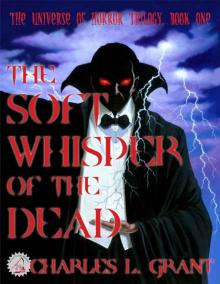 The Universe of Horror Volume 1: The Soft Whisper of the Dead (Neccon Classic Horror)
The Universe of Horror Volume 1: The Soft Whisper of the Dead (Neccon Classic Horror)![[Oxrun Station] Dialing The Wind Read online](http://i1.bookreadfree.com/i/03/19/oxrun_station_dialing_the_wind_preview.jpg) [Oxrun Station] Dialing The Wind
[Oxrun Station] Dialing The Wind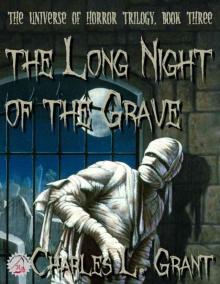 The Universe of Horror Volume 3: The Long Night of the Grave (Neccon Classic Horror)
The Universe of Horror Volume 3: The Long Night of the Grave (Neccon Classic Horror)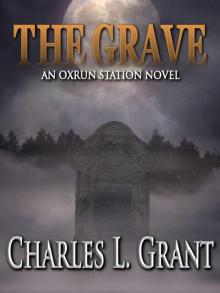 The Grave - An Oxrun Station Novel (Oxrun Station Novels)
The Grave - An Oxrun Station Novel (Oxrun Station Novels)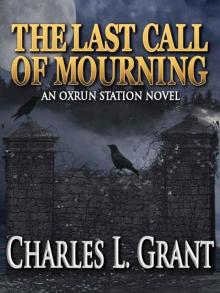 The Last Call of Mourning - An Oxrun Station Novel (Oxrun Station Novels)
The Last Call of Mourning - An Oxrun Station Novel (Oxrun Station Novels)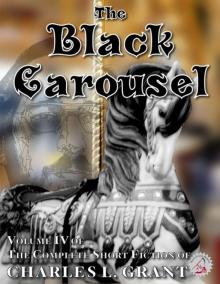 The Complete Short Fiction of Charles L. Grant, Volume IV: The Black Carousel
The Complete Short Fiction of Charles L. Grant, Volume IV: The Black Carousel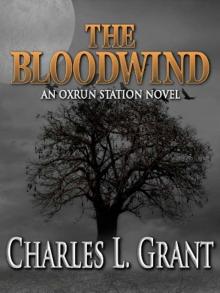 The Bloodwind - An Oxrun Station Novel (Oxrun Station Novels)
The Bloodwind - An Oxrun Station Novel (Oxrun Station Novels)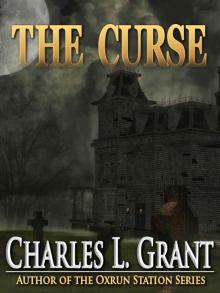 The Curse
The Curse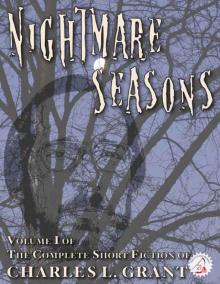 The Complete Short Fiction of Charles L. Grant Volume 1: Nightmare Seasons (Necon Classic Horror)
The Complete Short Fiction of Charles L. Grant Volume 1: Nightmare Seasons (Necon Classic Horror)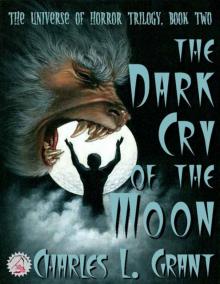 The Universe of Horror Volume 2: The Dark Cry of the Moon (Neccon Classic Horror)
The Universe of Horror Volume 2: The Dark Cry of the Moon (Neccon Classic Horror)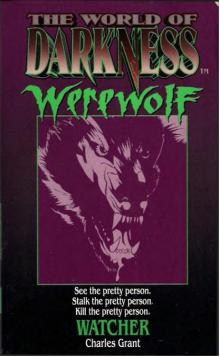 Watcher: Based on the Apocalypse (World of Darkness : Werewolf)
Watcher: Based on the Apocalypse (World of Darkness : Werewolf)![[Oxrun Station] The Bloodwind Read online](http://i1.bookreadfree.com/i/03/25/oxrun_station_the_bloodwind_preview.jpg) [Oxrun Station] The Bloodwind
[Oxrun Station] The Bloodwind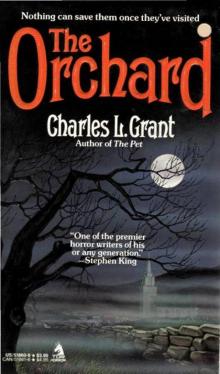 The Orchard
The Orchard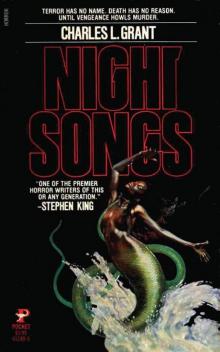 Night Songs
Night Songs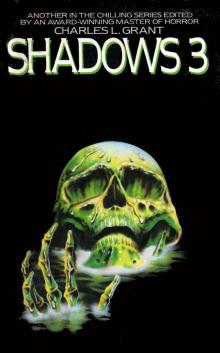 Shadows 3
Shadows 3![Symphony - [Millennium Quartet 01] Read online](http://i1.bookreadfree.com/i1/04/02/symphony_-_millennium_quartet_01_preview.jpg) Symphony - [Millennium Quartet 01]
Symphony - [Millennium Quartet 01]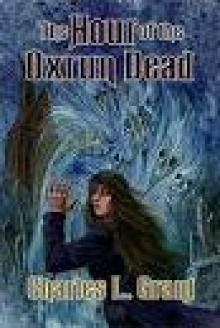 The Hour of the Oxrun Dead (Necon Classic Horror)
The Hour of the Oxrun Dead (Necon Classic Horror)![In the Mood - [Millennium Quartet 02] Read online](http://i1.bookreadfree.com/i1/03/31/in_the_mood_-_millennium_quartet_02_preview.jpg) In the Mood - [Millennium Quartet 02]
In the Mood - [Millennium Quartet 02]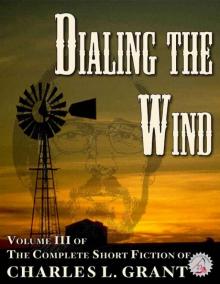 The Complete Short Fiction of Charles L. Grant Volume 3: Dialing the Wind (Neccon Classic Horror)
The Complete Short Fiction of Charles L. Grant Volume 3: Dialing the Wind (Neccon Classic Horror)![[Oxrun Station] The Last Call of Mourning Read online](http://i1.bookreadfree.com/i2/04/05/oxrun_station_the_last_call_of_mourning_preview.jpg) [Oxrun Station] The Last Call of Mourning
[Oxrun Station] The Last Call of Mourning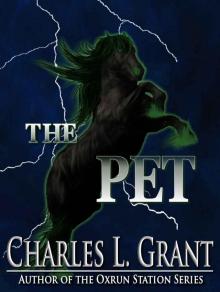 The Pet
The Pet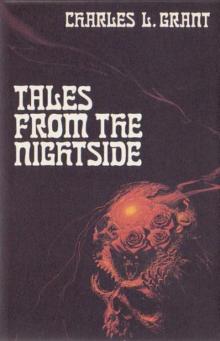 Tales from the Nightside
Tales from the Nightside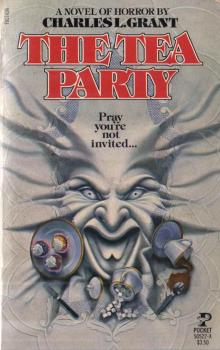 The Tea Party - A Novel of Horror
The Tea Party - A Novel of Horror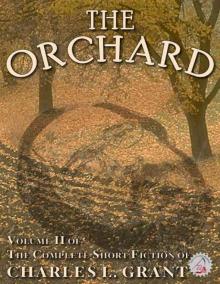 The Complete Short Fiction of Charles L. Grant Volume 2: The Orchard (Necon Classic Horror)
The Complete Short Fiction of Charles L. Grant Volume 2: The Orchard (Necon Classic Horror) Whirlwind
Whirlwind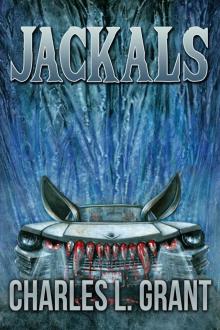 Jackals
Jackals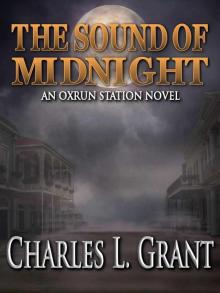 The Sound of Midnight - An Oxrun Station Novel
The Sound of Midnight - An Oxrun Station Novel